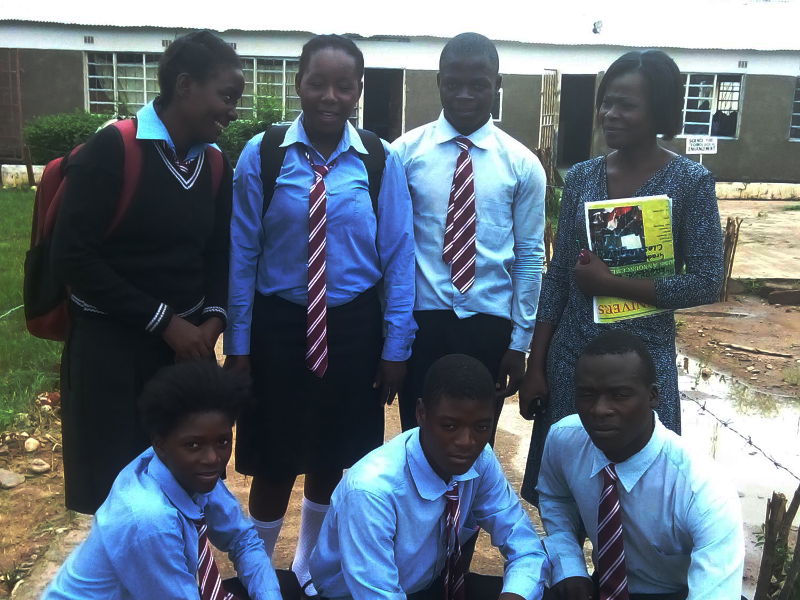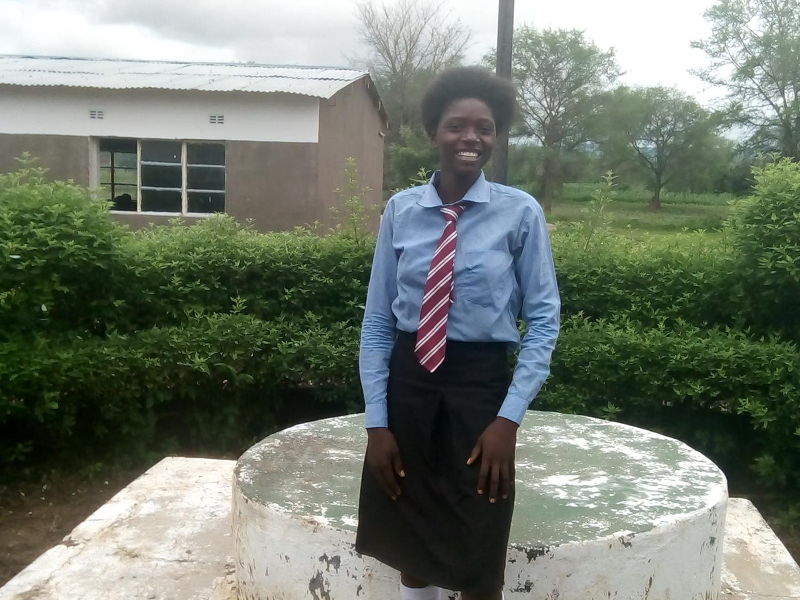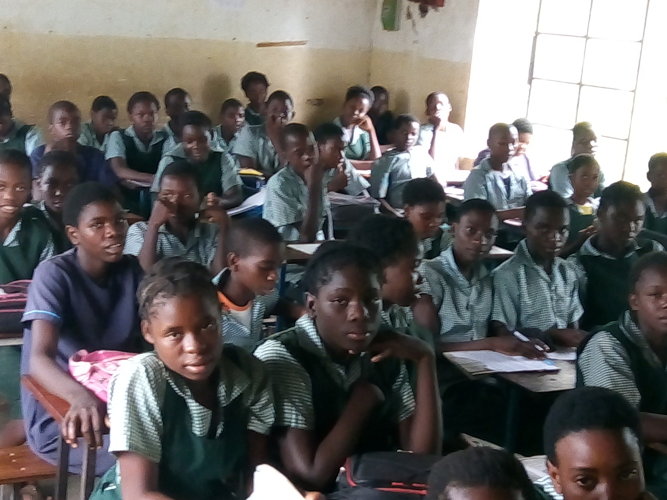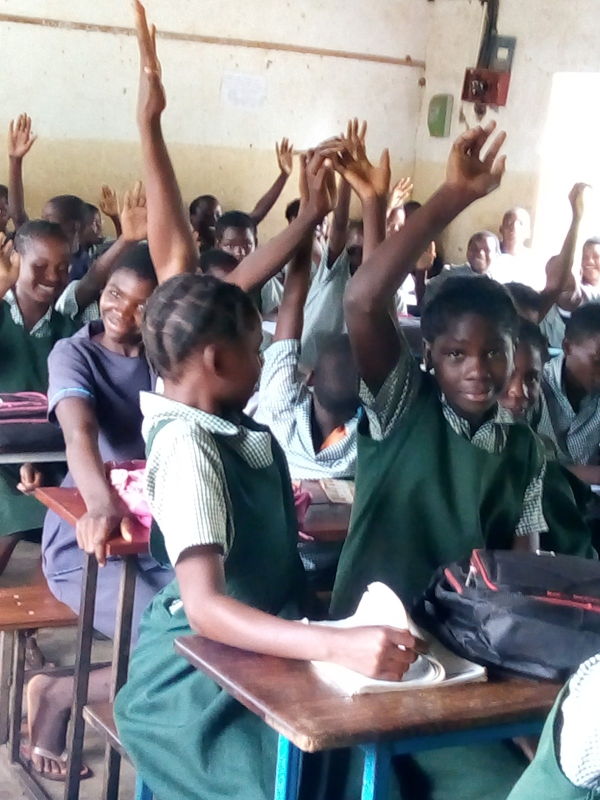Blog
Anual Report 2018
The past year has given as news to report on, building on top of the report of our partners in the Development Office.
 Supported pupils with teacher
Supported pupils with teacher
On a positive note we can report that the „Free Education Policy“ for grades 1-7 has finally been adapted thoroughly. Hence the Schulfee project will target only classed 8 and above.
This makes for the following numbers in 2018:
- Chirundu Secondary: 4x grade 9, 1 grade 10
- Nkandabbwe Secondary: 10x grade 10
Behin each of these numbers there is reason for joy. Bruce from Chirundu has passed on to grade 11 at the end of 2018. Two of his schoolmates have progressed from class 9 to 10. At Nkandabbwe Secondary every supported pupil has passed their year.
“School authorities have continued to appreciate the support rendered to pupils who are vulnerable because it is also their wish that pupils should be given an opportunity to complete school in order for them to build a future for themselves.”
– Agnes Simoloka, Development Office
Surrounding conditions
The fates we are meeting in this project have not changed much over the course of the years. Underfunded rural families living of their land on a day-to-day basis cannot afford the fees due for the education of their children and foster children. The schools on the other hand are depending on the fees to uphold their operation and dismiss belated pupils from class. The stress and pressure resulting from this situations deplete the moral of the pupils and increase the temptation to leave the academic path altogether and start an early worklife. The older the pupil, the more likely this becomes.

“I am a half orphan and my father who is still alive is not supporting me with my education. I used to sell chickens and vegetables to raise money for school fee but all those are finished now. Please help me with my education”
– Maliinda, Klasse 10 an der Nkandabbwe Secondary
The second good harvest since the start of the project still does not help building up the families’ income because simultaneously the minimum price for agricultural products decrease1. Ironically, during the late summer the currency dropped further2 causing the living costs to go up still (electricity, for example).
Lookout
The project will target the higher classes in the future. The participating schools and partners have expressed the whish to implement longer-lasting scholarships for individual pupils as well as spreading the support to cover more pupils (seeing that the selection becomes harder as the number of people in need grows). The realization of this will of course depend on the amount of donations we will collect, but the primary concern arguably remains to the ensure a long lasting project instead of quickly burning through all the money - our Zambian partners have captioned their report Love does not tire.
 Class room with up to 70 pupils
Class room with up to 70 pupils

-
Confer https://globalpressjournal.com/africa/zambia/price-maize-sinks-zambias-small-scale-farmers-look-alternate-crops ↩︎
-
Between September and October 2018 the course of the kwacha dropped by 15% compared to the dollar and euro. One kwacha now (April 2019) is worth EUR 0.07 (information aggregated from Google Finanzen, 05/01/2019). ↩︎
